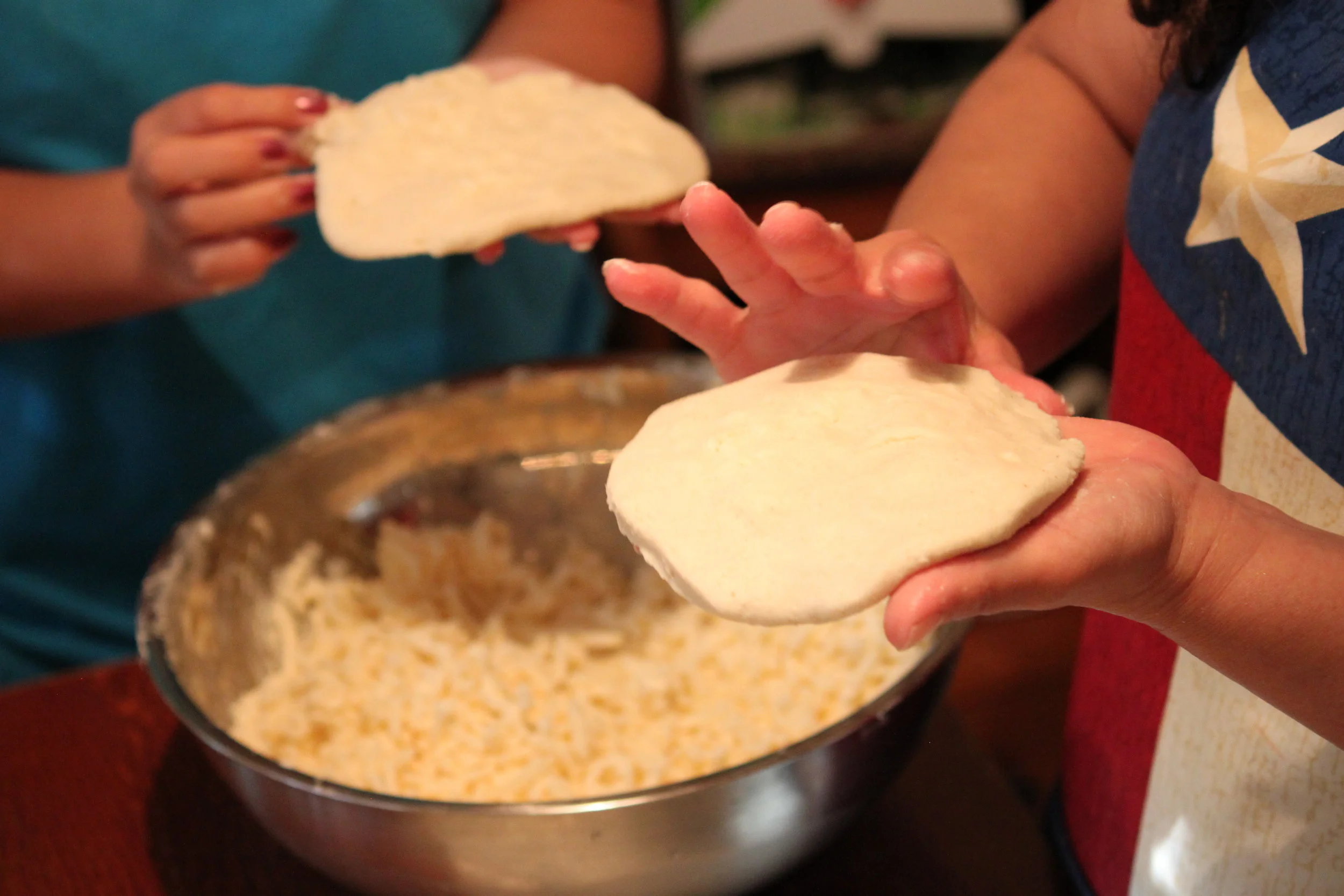Roar - part two
Part One was published last week on Immigrant Report.
Read the beginning of Betty Roque's story here: Roar- Part One
Betty Roque has not returned to her native El Salvador in more than 30 years and has since built a new life in Austin, Texas with her husband and three children. She never intended to leave her homeland permanently but she quickly learned life doesn’t go as planned and one must make the best of their circumstances.
Though she did not have the opportunity to complete her university studies and teach biology at the high school level, she instilled in her children the value of hard work and a strong education. She and her husband gave them what is perhaps the most priceless gift in life: opportunity.
When she left El Salvador, it was the mid-1980s and the Civil War raged on, claiming lives daily and having profound effects on the infrastructure and the spirit of the country and its people.
Her grandmother, the woman who raised her and taught her many things in life, such as how to cook, died of a heart attack when she was only 16. She was left with the responsibility of lady of the house, having to tend to her grandfather and uncles while also juggling her academic studies for years.
The usually stellar student struggled in some of her college classes and decided to take a break by visiting her aunt in Austin, Texas. When she arrived in the Lone Star State she didn’t realize she had arrived in what would become her new home entirely.
The following is a recount of some of her life experiences since arriving in the United States as told to her relative Christine Bolaños.
My arrival to this country was an odyssey completely different from what I imagined. I met my aunt and quickly met the man who would become my husband. My life changed completely.
My sisters and I were divided amongst family members when I was nine years old. I was used to living my life on my own terms until I had my own family.
Besides taking on laborious work, I enrolled in an English course. Even when I was pregnant with my first daughter I had to take on physically demanding jobs. We lived a modest life in a mobile home and by the time I had my second daughter, I was a stay- at-home mom and volunteered at a community resource center.
I transitioned from labor to daycare work and came on board at a Montessori school on the southeast side of Austin as an assistant teacher. I recall one family that included a single mother, a young boy, and his little sister. They lived in affordable housing near the daycare and the children attended the school on scholarships.
We knew the children were abused to some degree at home. The mother was intellectually disabled and she let others make decisions for her. She often had boyfriends who mistreated her.
We knew her son had behavioral issues due to their home life. He was intelligent and we tried to encourage him not just with Montessori curriculum but to give him some of the affection he lacked at home.
Over time, we saw some changes in him, including better eye contact and interaction with others. You could tell he felt the affection we expressed toward him.
That school was always special. We were a family and approached everything with that mindset including our relationships with colleagues, students, and their parents. We were a community and that is something I have yet to find at another daycare.
I worked at that Montessori school, which we called la Escuelita Montessori, or little Montessori school, for four years. In that time, I learned what having a sense of community felt like. It’s something I had never experienced before, and to be honest, something I haven’t felt outside of my own household again.
While I taught at other schools, they were corporate in structure, and so the family environment was lost. I learned the importance of helping one another: the children as well as colleagues and parents. You could tell how close-knit we were. When I got pregnant with my third child, and my only son, I was surprised with a baby shower organized by the parents and teachers.
They did everything from planning to decorating to gifting without expecting anything in return and for the pure joy of it. I remember they made time to find the perfect crib.
I felt such a sense of acceptance. My own family was growing and my husband and I saved up enough money for a down payment on a house in a suburb of Austin. We moved north just as I was awarded a scholarship to get my certification to become an official Montessori teacher.
Before moving, though, my middle daughter, who was attending the Montessori daycare, learned to read when she was only five years old and before officially starting kindergarten.
Though I’ve been teaching at daycares for about two decades now, that was still the school where I saw the greatest impact. I realized the difference I could make in the lives of children whose minds are still being molded.
It’s a wondrous thing to see young children learn to add, read, and have a love of nature. I try to teach them about nature by bringing in real-life items such as rocks, seeds, and leaves. I give them basic STEM lessons related to biology, chemistry, physics, and even engineering. They use blocks and paper rolls to make bridges and roads, for example.
"We tried to instill in them love for their country and pride in their Latin roots."
I think this philosophy goes back to my own childhood. Even when I was elementary school-aged, I tried to do the best I could in everything I did. I was the top female in my class. I think the reason school was so important to me is that I tried to fill the holes in my life. I lived with my grandparents, my aunts, and cousins, but it wasn’t the same as having a home life with my own parents and sisters. I think that’s how I created that mindset.
When I arrived in the United States, I saw the loss of my people. I didn’t feel anger, but a certain sadness and resentment. Over time, I realized the decisions the government made were because they felt it necessary to prevent communism from reaching the country.
I see their point of view and I’m happy here now.
As far as work goes, I often have parents who request me as their child’s teacher, and I think a lot of that is because I try to get to know each child individually. I try to identify their needs for learning as well as their emotional needs. I do a good job for the sake of my own classroom and because I want to feel proud of my own students; not because I want accolades or approval from central administration.
I want to do an honest job and to give the best I can. I love to see when children have learned something. When a parent tells me, ‘My child counted from 1-10 in geometric figures.’ When they learn something in Spanish.
I like when we use high level vocabulary words and do experiments to teach children about solids and liquids, as well as their reactions.
There is always something in nature that can serve as a lesson. Children learn best by engaging their senses, including feeling and touching different textures and shapes. It’s what helps them understand how the world works.
I do wish I had been familiar with these approaches to teaching when my own children were young. School was always a priority when raising our children and it still is. Even though it sometimes presented challenges, my husband preferred driving long distances to take our children to the best schools in the area.
We instilled in them a love for learning. We went to school events. We were always on top of their schoolwork when they were younger. When I was still a stay-at- home mom, I would go on field trips with my daughter’s class, and take the other children with me.
We liked exploring caves, getting in touch with our roots through food, music, and learning the Spanish language. I taught my eldest daughter to dance a little Baile Folklorico from El Salvador. We tried to instill in them love for their country and pride in their Latin roots.
I don’t know where I came up with the idea that as a parent one shouldn’t use their children so we went about it never expecting anything in return. As a person, you must learn to identify when someone needs help and be willing to help them. We also taught our children the importance of culture, family, and parents as part of one’s identity.
I was young when I made the independent decision to leave it all behind and start a new life here. We’ve taught our children to look for new opportunities and maintain independence while staying close to family.
Things are coming full circle now that I’ve decided to apply for U.S. citizenship. I had been a Green Card-holding resident up to this point.
All photography this page by Allen Tony Rhodes







